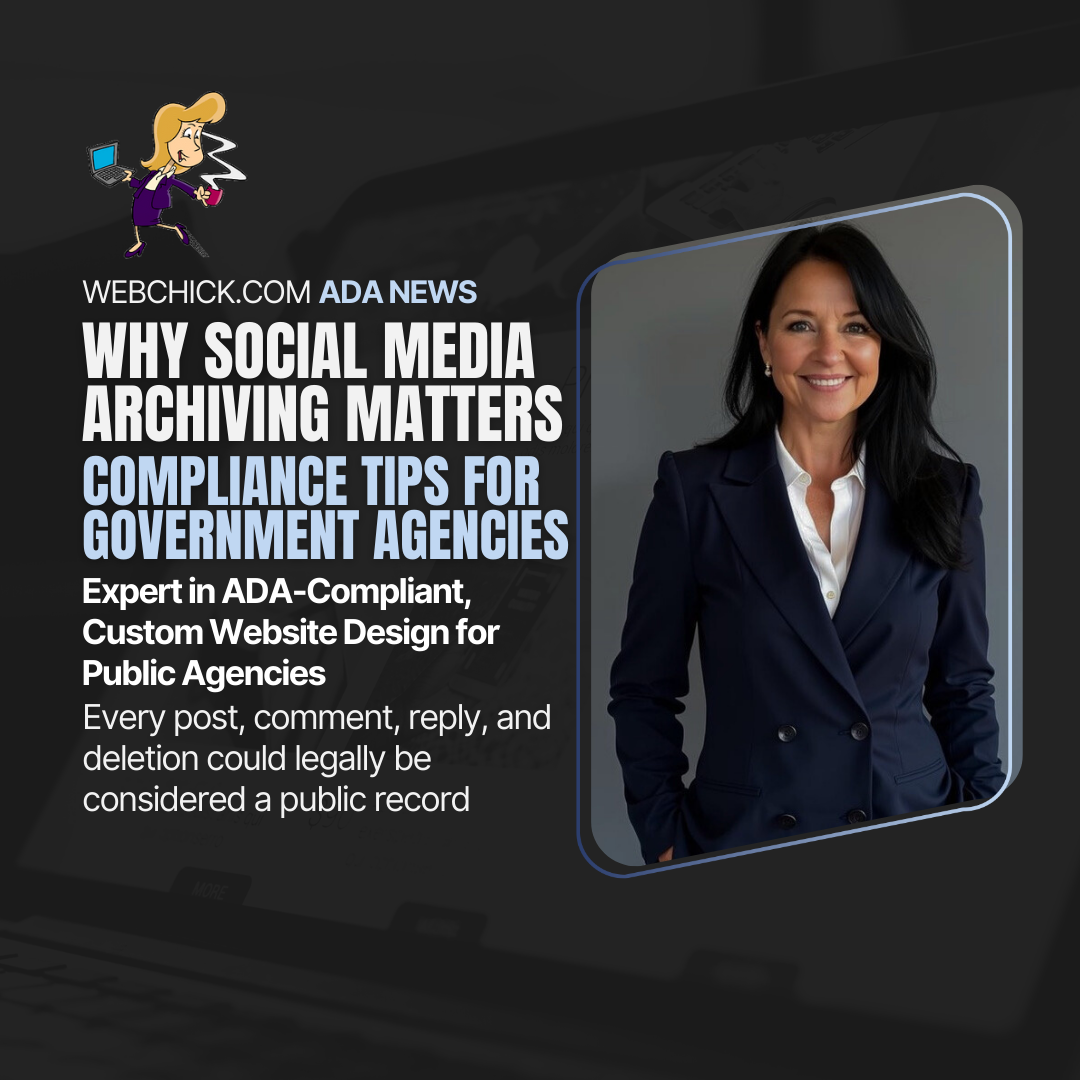
Why Social Media Archiving Matters:
Compliance Tips for Government Agencies
Brewed fresh by WebChick – your go-to for websites that work harder.
In today’s digital-first world, social media has become a critical communication tool for public agencies, law enforcement, townships, and municipalities. But with this visibility comes the responsibility of compliance, especially when it comes to public records laws.
Whether your agency is active on Facebook, X (formerly Twitter), Instagram, or YouTube, every post, comment, reply, and deletion could legally be considered a public record. And failing to retain these communications may result in non-compliance with state and federal records laws.
So what does this mean for your agency? Let’s break it down.
What Are Social Media Records?
Social media records are any messages, comments, posts, or interactions made on official government-run social media accounts. These may include:
- Public posts by the agency
- Replies and comments from the public
- Replies from the agency
- Deleted or edited posts
- Direct messages used to conduct public business
Many states, including Ohio, interpret these types of communications as part of their public records laws (e.g., Ohio Revised Code 149.43).
Why Archiving Is Necessary
Under state and federal regulations such as FOIA (Freedom of Information Act), FRCP (Federal Rules of Civil Procedure), and state-specific public records laws, your agency is obligated to retain communications.
This is why automated tools like ArchiveSocial, PageFreezer, or Smarsh are commonly used to:
- Archive all content, including deleted posts
- Maintain metadata (timestamps, usernames, edits)
- Provide searchable, exportable archives
- Prepare records for public request or legal compliance
Manual methods such as screenshots or saving text files do not meet legal or audit standards.
Social Media Retention Best Practices
If you're managing digital communication on behalf of a government agency, these best practices can help keep you compliant:
- Use an Automated Archiving Tool – Don’t rely on screenshots. Use a compliant service that captures and stores your social media interactions.
- Define a Retention Policy – Determine how long to keep records (typically 2-3 years minimum, or per your state's schedule).
- Train Staff – Ensure staff understand what content needs to be retained and what platforms are covered.
- Avoid Deleting Without Archiving – Always archive content before removing it, even if it’s spam or inappropriate.
- Document All Accounts – Keep a current list of all official agency accounts and ensure they are covered in your policy.
Quick Tips for Compliance
- Keep records of who manages each account
- Update your social media policy to include retention practices
- Ensure accounts are connected to a records manager, not just one employee
- Use guest accounts and admin restrictions for control and transparency
- Always respond professionally on public threads — they are permanent
Free Resource: Download Our Social Media Retention Checklist
We've created a downloadable checklist you can print, share with your team, and use as a training tool.
Download the Social Media Records Retention Checklist (PDF).
Need Help Getting Compliant?
At Web Chick, we build ADA-compliant, custom websites for townships, government agencies, and public organizations. We also help implement best practices for online communication, accessibility, and transparency.
Ready for a consultation? Contact us at WebChick.com

